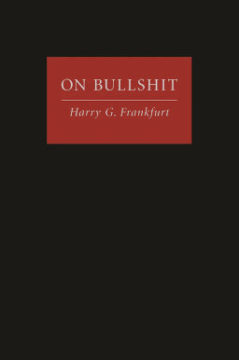by Jochen Szangolies

A proposition, like “it’s raining outside”, can either be true or false—it might be the case that it actually rains, or not. It is then seductive to think that somebody uttering such a proposition is doing nothing but making a factual claim, and in doing so, either tells the truth, or not. Furthermore, we might surmise that, in the case that the claim fails to actually hold, the utterer, proclaiming a falsehood, is lying. In doing so, however, we would be getting ahead of ourselves: there is both more to making a simple utterance than the mere proclamation of a fact, and to its veracity than lying or truth-telling. Let’s tackle these in turn.
First, when I tell you “it’s raining outside”, I not only make a claim about the world (that it is, in fact, raining outside), but also a claim about my own assertion: that it is, in fact, truthful; and thus, by extension, about myself: that I am a truth-teller. Consequently, you believing me does not just mean you believe something about the world, but also, that you believe something about my own relationship to truth, at least in this particular instance.
All of this means that simple facts about the world are never just simple facts about the world; inasmuch as they come to us indirectly, that is, not as immediately present in our own experience, they are elements of a complex web of beliefs and attitudes. Believing me to be an inveterate liar, you might well rather be inclined to believe that it’s all sunshine outside when you hear me blathering on about the drizzle. If you happen to know I’ve spent the last hour tinkering away in the cellar, you might not attach any particular value to my claim, believing me to be ignorant on the matter. Your judgment regarding the meta-claim of my assertion’s truthfulness affects your belief in its content: the world-picture you create based upon it varies with your assessment of my stance towards truth.
Thus, when talking about the world, it’s never just the world we’re talking about, but the world as filtered through our interlocking sets of beliefs; we do not inhabit the world of bare facts, but of facts via social transmission. Just like the bare assertion “it’s raining outside” is enriched by implicit attitudes to be taken towards it and its originator, so are the reported facts of the world enriched by facts about their manner of reporting, and our beliefs about these facts.
We take the world as we know it to be, in the best case, an approximation to the ‘real world’ out there. We’re right about some things, and wrong about others, and might hope to eliminate the wrong in favor of the right, perhaps by means of scientific inquiry. But this picture disregards the social dimension of the world as something lived in by, perceived by, and shared (both as in co-inhabited and communicated) by other people, other ‘agents’ in the social sense. It might be appropriate for a singular individual (but even there, questions about trust in one’s own truthfulness, both that of the senses and one’s beliefs about one’s motivations, loom), but fails as soon as another enters the picture.

Two people will, each, have a somewhat different picture of the world, and that world, in each case, contains an image of the other and of their image of the world. This image will contain beliefs about the other’s attitude to truth, which in turn will inform how our image of the world might change based on their reports. In its social image, the world becomes a many-faceted object, like Indra’s net, endlessly reflecting itself. This starts with simple theory-of-mind issues, like gauging what elements of knowledge about, say, the placement of some hidden object could be available to another, and thus, what their likely beliefs ought to be. But it goes much further than that, beyond what knowledge is available to them, into their own beliefs about you as their audience, and how that might impact their attitude towards the truth (a potential love interest, in seeking to impress you, might be incentivised to exaggerate attributes they believe you find desirable), and so on.
In short, even a simple utterance is rarely just a statement of fact, and a world constructed from such utterances is not just a world of things that might or might not be true.
But—and now we’re getting to this essay’s actual topic—not everybody proposing a falsehood is, thereby, a liar. Just as there is more to reported facts than the question of their veracity, there is more to the reporting than the question of its truthfulness.
Doubt Truth To Be A Liar
First, there is of course the issue of error, or ignorance. I might believe that it’s raining outside, even if it isn’t, and thus, might make a false report on that account. But in this case, I’m still accurately reporting my own beliefs: there is a truth here still, and that truth—that I believe it to be raining—is reported accurately. The connection of my belief to the world might fail, but my attitude to truth is still positive: I intend to report a truth, and it’s only human fallibility that prohibits me from doing so.
In contrast, the liar’s tale also relates to truth—but strictly negatively. They are cognizant of the facts, but, for whatever purposes, wish to convince you of something else—perhaps expecting some payoff (your child, being asked to mow the lawn, might tell you it’s raining so as to get out of the chore, for instance). But affirmation and negation don’t exhaust the possible attitudes to truth—not by a long shot.

On the matter of attitudes towards truth, the American philosopher Harry G. Frankfurt broke new ground by pointing out that there is a kind of speech act that neither affirms nor negates the truth of its nominal content, but for which this is an entirely orthogonal matter. Memorably, he created the philosophical term of art ‘bullshit’ for such speech, in his now-classic essay On Bullshit. (Its opening line, incidentally, might be one of the best in all philosophy: “One of the most salient features of our culture is that there is so much bullshit.”)
Bullshit can be characterized as an utterance whose intended effect is entirely unconnected to its factual accuracy. Its chief intent is not to convince its recipient of a certain matter of fact, but to effect some other reaction. The bullshitter might use their speech to manipulate, incense, rile up, or simply to drown out other voices. Indeed, Frankfurt claims, “bullshit is a greater enemy of the truth than lies are”, and he sees the rise of bullshit as a major destabilizing force in contemporary society (many have surmised that this has been borne out by events of recent years, with an apparent turn to ‘post-truth’ narratives).
However, not all bullshit is socially corrosive. A relatively benign example is speech intended to just fill an awkward silence—it’s not whether what is being said is true or not that’s important, but its function as being something to paper over a gap in the conversation. Similarly, friends might sit together, ‘shooting the shit’, making conversation whose purpose is just to act as a sort of social glue, without any great importance being attached to topic or truth. Speech is not always communication, much less an attempt to (mis-)inform, so whether it does so is not necessarily indicative of its appropriateness.
Frankfurt discusses the notion of a bull session, as a sort of communal experience where certain attitudes and opinions can be aired without necessarily carrying the weight of a full commitment for the speaker—a sort of experimental proving ground for ways of speaking, and by extension, ways of being. This is not quite what I have in mind. Rather, I am thinking of speech as a simple social activity, like dance, or music, a performative act that asserts, perhaps, group identity—if it asserts anything. Frankfurt claims that such activities differ from bullshit in that there is no pretense towards upholding the usual claim made implicitly with any utterance, namely, that it is believed to be truthful; I’m not so sure—it seems to me that one might, in such a situation, both express a sentiment in a way that asserts its truthfulness while ultimately disregarding this truth. Take the habitual griping about the powers that be around the regulars’ table down at the pub: it is indeed asserted as truthful that the actions of party X are wholly responsible for misfortune Y. But at the same time, the point of the utterance really is just fostering a communal us-against-the-mighty spirit.
Bullshit, then, is not simply a force for evil. It’s a tool in our social toolkit, and how it’s used determines its consequences. Just as lies can save lives (when we, pace Kant, don’t tell the would-be murderer that their intended victim is hiding upstairs), bullshit can act as social glue, bringing cohesion to our shared social world. Of course, just as every in-group defines (or perhaps, is defined by) an out-group, it can just as well be used to separate us from those others that are not like us.
Playing At Truth
The above introduced a performative dimension to our speech acts. At least some of our utterances and behaviors are for the benefit of an audience, real or imagined, and are aimed not at informing them of some particular fact, but at showcasing our relationship to them as social ‘other’. This is often done to signal the fulfillment of some particular role. The French existentialist Jean-Paul Sartre gives the example of a waiter who, in the way he performs his duties, is just a little too conspicuously servile, a bit too on-the-nose in inhabiting his waiterly role: he is play-acting at being a waiter, rather than authentically being one.

To Sartre, this amounts to a form of self-denial. We, as human beings, always have the option of doing otherwise; we are radically free, and thus, at every turn, uniquely responsible for ourselves. This is even true under coercion: if somebody holds a gun to your head, and tells you to give them your wallet, you can still choose to say no. Thus, if you do give them your wallet, it still is ultimately your own choice. To deny this amounts to allowing oneself to become a mere object at the mercy of forces beyond one’s control. In merely inhabiting the role of a waiter, going through the motions as if forced by circumstance, one thus denies an essential aspect of one’s humanity—in Sartre’s term, one is in ‘bad faith’ (mauvaise foi).
However, this opens up a paradox: the waiter, in denying his own freedom, acts essentially freely—he exercises his freedom in order to deny it. I believe this paradox can be resolved by noticing that the waiter is not just a human being acting in a ‘background’ world, but also and at the same time a social being inhabiting a social, shared world.
Consider a world in which we are all just radically free subjects. Like the atoms of an ideal gas, we would trace our course freely, without influence from external forces, save for the occasional ballistic collision with other free agents. But this is not the world we live in: rather than just careening through an immutable fixed background, our trajectories are shaped by our nature as social beings, which stands in permanent interaction with that of others. The social world we jointly create ensures that we are always enmeshed in a vast net of interactions, and through these interactions defines our nature as social beings.
Sartre’s bad faith obtains when we deny our freedom in the face of mere external constraints which we could, in principle, transcend (he speaks here, rather fittingly in the present context, of the ‘facticity’ of the world); but if we realize our dual nature as individuals and social beings, it can be an authentically free act of the waiter as social being to constrain the freedom of the waiter as individual. The antinomy then disappears, in a manner similar to how careful distinguishing between levels of meaning resolves other classical conundrums, e.g. Berry’s paradox.
All In On It
Bad faith on the level of the individual then may just be an authentic expression of the individual’s superordinate nature as a social being. While it is an act of pretense, of untruth, it is an act in service of the construction of a shared social reality, the creation of a communal, higher-level truth. Rather than with derision, we may meet Sartre’s waiter with a knowing wink, both understanding that the act put on is not one of self-denial of the individual, but of self-affirmation of the social being. Each of us knows it’s all an act, and each knows that the other knows; and in this mutual knowledge, we construct a shared social reality.
In the wrestling world, this sort of shared act is known as kayfabe. Engaging in kayfabe is to accept the staged rivalries, relationships or gimmicks as real, and to keep up this pretense even beyond the nominal area of performance, the ring. In accepting this shared reality, the audience becomes as much a participant as the performers, creating a larger, joint world beyond the merely factual.
While kayfabe, to the best of my knowledge, still awaits philosophical consideration, I believe its prevalence in the modern world is readily apparent. This ranges from small social rituals, like the exchange of pleasantries with a distant acquaintance upon a chance meeting that both participants ultimately know to be meaningless, to legal fictions, such as the notion that yes, I have read and agree to the end user license, to the largest stage, politics, where supposed bitter rivals enjoy a friendly chat over a shared meal, when the crowds aren’t looking.
Kayfabe is wherever we choose to engage in a mutual fiction, rather than insisting on the primacy of individual facticity. As such, it is an element of our social toolkit and, like every tool, can be used for both good and ill. As compared to bullshit, kayfabe lacks the deceiver/deceived-dynamics; two parties engaging in kayfabe are both in on the act. This of course invites the question: for whose benefit do we put on this a show?
I think it is the larger social world itself that is the audience for this mutual fiction. We shape the world by acting as if it already conforms to our design. The waiter and the waited-upon create the dynamics of their respective roles by acting out their part to the larger world around them.
But like bullshit, kayfabe also has its abuses. It can create oppressive, rigid environments where deviancy is strictly forbidden, lest the fiction collapses. The social world we create bears the mark of its creators: it can furnish an environment of individual flourishing in the comfort of supportive social realities, or misery under the dictatorship of arbitrary and draconically enforced rules and mores. The key is to understand that the world we inhabit is not merely given to us; it is created in our interactions, in the shared fictions we conjure into social realities.
We do not live in a world of approximately-true facts, which a completed science could perhaps elucidate fully for us. The world we, as living, communicating beings inhabit is one of beliefs and attitudes to claimed reports of facts; it’s one of truth and lies, but yet moreso of bullshit, bad faith, and kayfabe. This is not cause for despair: as social beings, our world is a social one, and it is only when we confuse the world we inhabit with a putative world out there of facts in themselves that we loose sight of this. Now, if you’ll excuse me, I’ll head out. The sun is shining.
